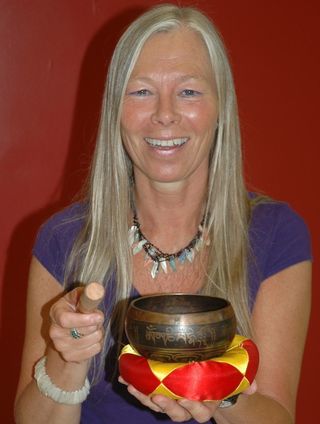
Psychoanalysis
In Memoriam: Benedikte Barth Scheiby
Mourning a beloved music psychotherapist who transformed lives around the world.
Posted April 17, 2018
“What is the word?”
This is how Benedikte Scheiby often initiated musical improvisation in her therapy and supervision sessions. What was the word, or idea, or feeling that would give energy and direction to the music that was about to be made?
Countless people around the globe—students, supervisees, trainees, clients—are no doubt thinking of their own word. The one that keeps coming back to my mind is hole. I see an image of the gaping hole in the beating heart of the music therapy universe, which has lost a generous, loving, one-of-a-kind presence.
The music therapist and educator Kenneth Aigen wrote on April 17, 2018: “Benedikte Barth Scheiby—Viking warrior woman, music therapist, proud Dane, mother to many, and the shining star of my life—passed away early this morning in the embrace of Sara, Daniel, and me.”

Benedikte was indeed all of those things. And yes, a figurative mother to a sizeable number music therapists in the greater New York area and scattered around the globe. Her influence is so widespread and varied that it summons the ancient parable of the blind men and the elephant. The men are able to form their understanding of the huge animal based only on whatever part each one is touching. The man holding the trunk tells the others that an elephant is like a large snake. Another man wrapping his arms around an enormous leg says no, it’s much more like a tree trunk. A third man, leaning up against its side says no, you’re both wrong, an elephant is much more like the side of a house.
And so it is among the people touched by Benedikte Scheiby. Her name will be forever connected with Analytical Music Therapy (AMT), a branch of music therapy infused with psychoanalytic thinking developed by Mary Priestley in England and carried on by Benedikte in the United States and beyond.
At the same time, Benedikte devoted a big part of her life to clinical supervision, often for music therapists who pursued approaches different from AMT. As a supervisor she was not doctrinaire about method; she understood implicitly that success in therapy can result only from a strong therapeutic relationship. Unconditional positive regard was her default state of being.
There is yet another side to Benedikte’s therapeutic work. After establishing herself as a prominent music psychotherapist, she studied body psychotherapy and incorporated it into her practice.
An influential person as multifaceted as Benedikte Scheiby will leave more than one single legacy. The people whose lives she touched and changed all carry her words inside them. There is a handful of particular phrases that would recur now and then, often at the end of a session as a kind of capstone. One music therapist said recently that when she hears Benedikte’s voice in her head, she’s telling her, “Show up for yourself.” Another hears her saying, “Slow down!”
On those days when I hear Benedikte’s voice helping me to be a better therapist, and they are frequent, she reminds me: “You are your own best teacher.”

